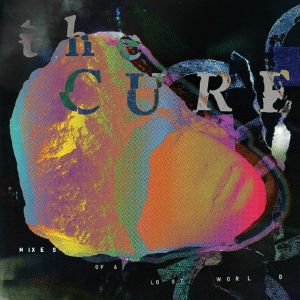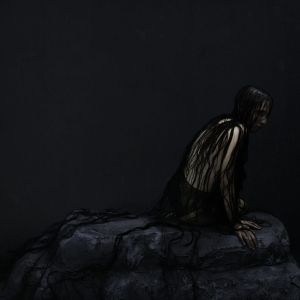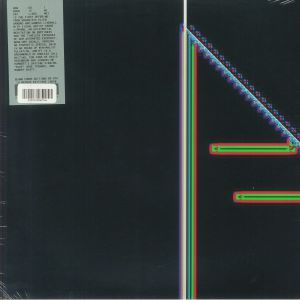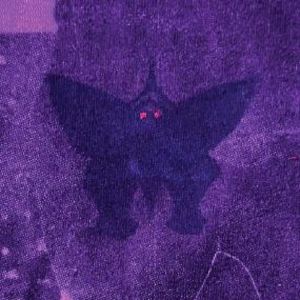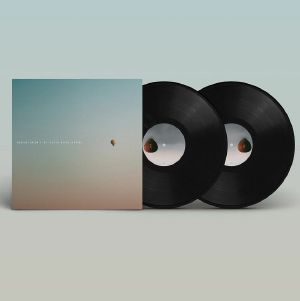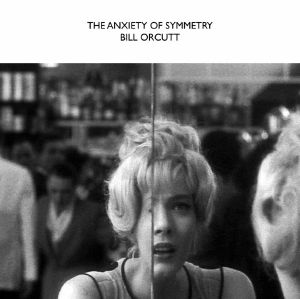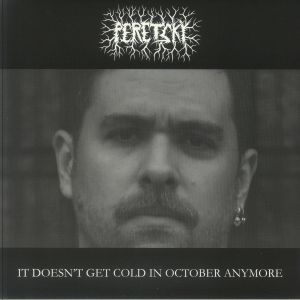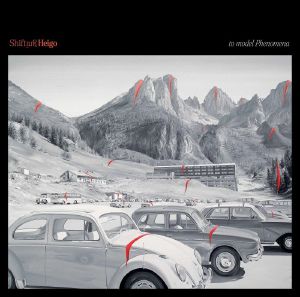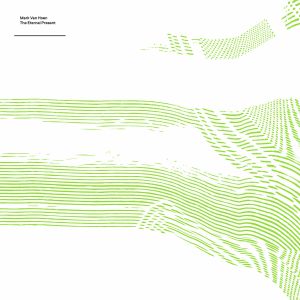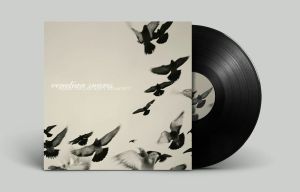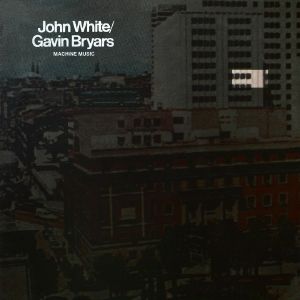New releases last two weeks: Experimental/Electronic
Experimental/Electronic vinyl released in the last two weeks
Items 1 to 27 of 27 on page 1 of 1
in stock $27.98
Review: A four sided selection of remixes of the goth kingpins' widely acclaimed and long awaited latest album Songs of a Lost World. From the moment Paul Oakenfold's 'I Can Never Say Goodbye' rework opens proceedings i lush strings, half-submerged vocals, and a cinematic pace i it's clear that curation, not just contribution, has shaped the form. Orbital turn 'Endsong' into a glistening spiral of sequencers and tension, while Sally C's raw house take on 'A Fragile Thing' ups the pulse without disturbing the gloom. Smith i still unmistakably the same outsider from Crawley, West Sussex i guides things with restraint, letting the space speak louder than the noise. Four Tet's version of 'Alone' closes the first disc like a forgotten lullaby, cracked and glinting. You don't get every remix i the more textural, post-rock turns are gone i but you do get a sharp cross-section that keeps faith with both atmosphere and momentum. It's the kind of record that feels designed for the night: not to lift it, exactly, but to sink into it willingly, track by track.
… Read more in stock $37.02
Basho/Still Forms (LP + MP3 download code)
Cat: SPGRM 012LP. Rel: 12 Jun 25
Review: Portraits GRM offer a split release between Beatrice Dillon and Hideki Umezawa, riffing on 'basho' and Baschet respectively. Dillon's 'Basho' is shaped on the mortar of a Japanese philosophical concept: conceived by Japanese philosopher Kitaro Nishida, basho describes a post-physical plane in which experiences and thoughts interconnect, dissolving subject-object distinctions. Dillon and Umezawa's music both resist fixity, reactivating the listener's attention by way electronic sounds stripped of origin. Umezawa's 'Still Forms', however, contrasts Dillon's firm-footed techno curtails with an entirely beatless piece, exploring the sonic potential of Baschet sound structures: experimental instruments developed in the 1950s by Bernard and Francois Baschet. Electroacoustic cognitions branch out like newly grown synapses on this fresh 12".
… Read more in stock $23.73
Cat: TPLP 1964LTD. Rel: 05 Jun 25
Review: Nadah El Shazly returns with her second album and first on One Little Independent and Backward Music. The Egyptian-born, Montreal-based artist blends experimental sonics with Arabic roots and improvisation on Laini Tani, and crafts music that slips between worlds and takes you with it. The whole record pulses like a hot night stretching into morning. It's sweaty, surreal, and endlessly alive and each track is a vivid fragment: defiant, euphoric or quietly raw. El Shazly's lush vocals and layered metaphors weave a dreamstate of meaning and mystery that bold and chaotic yet controlled so is a record to get lost in, then hit repeat as you try to decode its hidden truths.
… Read more in stock $30.51
in stock $26.29
Review: Backdrops of engineered silence and societal distraction inform on this from Fatboi Sharif and Driveby, twin rap verbalisers from the hinterzones of New Jersey. Let Me Out confronts the fractured psyche of a world numbed by noise: a raw, unfiltered dispatch from the underbelly, where six-figure illusions swing pendularly over mirrored truths, and suppressed rage simmers beneath manufactured calm. Tracked at 2ndststudios and shaped by the precision of Steel Tipped Dove, the record is sharpened further by the eerie co-production of DJ Boogaveli on 'We Fought for this Country!?' and haunting backing vocals from Paul Keim on 'Krossroads'. From milk-and-oil confusion to the cracked prayers of trauma survivors, each track on this grittily sculpted noise rap record erodes our psychic Achilles' heels, through emotional debris and soul static.
… Read more in stock $35.89
in stock $25.15
Acrobatizm/Prepared Wave (translcuent pink vinyl 2xLP)
Cat: DATAK. Rel: 10 Jun 25
Review: Legendary video game soundtrack-er Motorhiro Kawashima is best known for his efforts on the iconic Streets of Rage 2 and 3 titles. The latter is remembered as one of the hardest to define scores of all time, certainly in terms of a playable titles, and even 30 years on still amazes and baffles anyone who encounters it. Less well known are the artist's solo and standalone efforts, which came much later. Acrobatizm and Prepared Wave were the first two of those records, and emerged in the pre-pandemic late-noughties. Both draw heavily on the glitch and leftfield experimental techno worlds, which were in rude health at the time, doubling down on staccato rhythms and mind-blowing arpeggiation, with the punchiness and jerky vibes more than nod to the glory days of 8-bit gaming.
… Read more in stock $37.02
Comme Des Mots (LP + print)
Cat: GYBGL 01. Rel: 03 Jun 25
in stock $32.50
Cat: BF 074LP. Rel: 05 Jun 25
in stock $27.98
in stock $28.83
Review: Built as a continuous 55-minute suite split into nine movements, Marconi Union's The Fear Of Never Landing hears the duo recapture a state of exhilarating levity. Their 12th studio album, it finds them in refreshed head and soundspace, having come a heck of a long way since their 2003 debut Under Wires And Searchlights. The record emerged slowly over two years, during which the Manchester duo (Jamie Crossley, Duncan Meadows) grappled with creative uncertainty, reconnecting with their foundations through live experimentation. The catalyst came while scoring the cult 1975 film Downhill Motion, an experience that rekindled their affinity for cinematic composition and set the tone for this surefire introspection aid. From 'Eight Miles High Alone', a hypnotism which finds its inducer in sequencer-driven pulses, evoking isolation, weightlessness and quiet tension.
… Read more in stock $35.32
Review: Madrid duo Pablo Miron and Juan Vacas return with their second album, En Perpetua, which delves deeper into their signature decayed collage and psycho-acoustic soundscape while building on their debut Of No Fixed Abode. This time out they also embrace new creative confidence and the possibilities offered by a fresh Madrid studio and use violin, harmonica, voices, guitars, a looper, FM radio and diverse array of field recordings-from the Spanish countryside to exhibition sounds-to bring it to life. They craft eight re-pitched meditations that explore fractured music and rhythmic patterns which unfold through their distinctive, open-ended and immersive tonal journeys.
… Read more in stock $25.72
in stock $40.98
Review: Bill Orcutt's approach to the guitar feels less like playing and more like detonating: a flurry of stabbing phrases, mangled blues motifs and broken time signatures that teeter constantly on the edge of collapse. It's a sound he's refined over decades, from his early days in Miami's punk and noise scenes to his present-day experiments in live-coded digital abstraction. This new album, which features two versions of 'Anxiety of Symmetry', finds him at his most feral and funny in years i a twisted tribute to the clunky MIDI guitar presets of the 90s, rendered via his cracked-software experiments with two fifteen-minute compositions built from a single concept: six sung numbers, each mapped precisely to pitches in a major scale. These micro-phrases ('1-2', '1-2-3', and so on) repeat and multiply, creating swirling polymetric harmonies that flicker between gentle hypnosis and algorithmic overload. Female voices loop in cycles of uneven length, forming structures reminiscent of Glass's Einstein on the Beach, but without its theatricalityithis is music of obsession, not spectacle. The emotional register is unusually soft for Orcutt, but behind the surface calm lies a meticulous compulsion. In an essay of the same name, he aligns this method with "Just Right" OCD, proposing a feedback loop between mental fixation and machine logic. What emerges isn't ambient in any passive sense, but a kind of orderly unravelingicomposition as therapeutic ritual, echoing the recursive spirals of Hanne Darboven or the trance-state potential of counting itself.
… Read more in stock $30.24
in stock $26.29
Cosmically A Shambles ('shambolic' yellow vinyl LP + insert + MP3 download code)
Cat: CANKLP 027. Rel: 12 Jun 25
Review: Preston's Polypores looks asperse at the universe with Cosmically A Shambles. Known for his immersive modular synth compositions, Buckley now submits a bold step into rhythmically harder-driving territory, blending hypnotic polyrhythms and fuzz-dinked drum machines, all while retaining the hands-on, improvisational ethos that cornerstones his work; eschewing samples and presets in favour of tactile synth play. Preceded by his debut 7" lathe cut single 'Whorl', Cosmically A Shambles marks a thrilling evolution in the Polypores sound, still cosmic, but with a heavier pulse.
… Read more in stock $24.31
in stock $24.31
Review: Words and terms such as benchmark, revolutionary and paradigm shift are thrown around far too casually and liberally when writing about music. But if there's one electronic album that really does live up to those tags it's Ultravisitor. Still sounding like it's from another planet to this day, from the moment eponymous opener headbutts us with an ice breakbeat shatter to those very last guitar plucks on 'Everyday I Love', this is concentrated Squarepusher in every possible geometrical permutation. So many breakcore and IDM parameters were set on this exceptional body of work. From the metal militancy of 'Steinbolt' to the fantastical drive (and wild slap bass) of 'Tetra-Sync', this remains a wholly unique LP that's both wonderful challenging and definitely not of this earth.
… Read more in stock $31.38
Asuma (remastered) (limited LP + MP3 download code with obi-strip)
Cat: EMEGO 037V. Rel: 02 Jun 25
in stock $33.07
in stock $22.60
Review: The most aptly-named record label in the world, Light Sounds Dark present another collection of wildly experimental bits and pieces cultivated in the lab of things that you simply don't hear in other places. Suitably christened 'Track 1', 'Track 2', and so on until 'Track 29', this is a huge point of entry for newcomers to the LSD realm and an excellent deep dive for veterans alike. Winds howl and thunder crashes before beautiful harmonies change the vibe from cold to warm, Gregorian chants echo in and out above dubby, stubby beats, and post punk guitars lunge forward beneath jerky, naive melodies. And that's just the first few parts here. A journey to the outer reaches of the musical universe, then back again, turning left at the industrial jazz and continuing through shoegaze, soundtrack, field and weirdo pop. Mind you don't get lost, now.
… Read more in stock $40.68
VARIOUS
Music To Accompany The Poems Of Edgar Allan Poe (purple & blue vinyl 2xLP)
Cat: LOTO 01809. Rel: 02 Jun 25
in stock $31.93
VARIOUS
Next World Sound Vol 4 (translucent lavender vinyl LP + insert)
Cat: HYPSPLP 15. Rel: 04 Jun 25
in stock $27.70
Cat: ZIQ 111. Rel: 05 Jun 25
Review: One of the flagship albums by Aaron Funk aka. Venetian Snares (alongside Songs About Cats, Higgins Ultra Low Track Glue Funk Hits 1972-2006, Winnipeg Is A Frozen Shithole and The Chocolate Wheelchair Album), Rossz Csillag Alatt Szuletett marks itself out in his sonography as a breakcore album which, aside from its lobotomising breaks, features mostly classical strings and brass. Gloomy and melancholic, the album's title translates from Hungarian to "Born Under A Bad Star", i.e. "cursed from birth", and the record transmits a superstitious chain of influence, with track 3 covering Budapest composer Rezso Seress' 'Gloomy Sunday', which was said to have inspired the suicide of the original musician's own girlfriend. Renditions of Mahler, Stravinsky, Paganini, Prokofiev and Edward Elgar all follow in morose but energetic fashion, demonstrating the Canadian IDM artist's quirkily sized collection of drill bits.
… Read more in stock $26.29
in stock $33.90
Items 1 to 27 of 27 on page 1 of 1

 USD
USD






